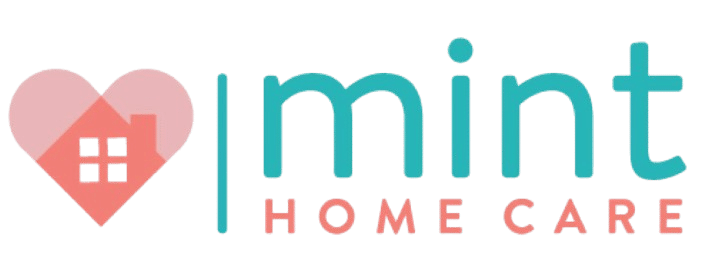Hospital to Home Transition
Returning home after a hospital stay can be a significant adjustment, both for individuals and their families. The process requires careful planning and support to ensure a smooth recovery. Mint Home Care provides comprehensive hospital to home transition services that prioritize safety, comfort, and successful healing.
Home Care Transition Services include:
- Companion Care
- Homemaker Services
- Personal Care Services
- Safety and Security
- Memory Care
- Hospital Sitter Services
- Full-Time Care
- Part-Time Care
- Overnight Awake Caregivers
- Hourly Home Care
Before Discharge: Hospital Sitter Services
Mint Home Care is the leading provider of Hospital to Home Transition for seniors and families in Fairfax, Arlington, Annandale, Springfield, Burke, Centreville, Vienna, Manassas, McLean, Alexandria, and surrounding areas.

What Are Hospital to Home Transition Services?
Hospital to home transition services are designed to support individuals as they move from medical facilities back to their homes. These services address common challenges, such as managing medications, attending follow-up appointments, and adapting to recovery routines.
This care is especially valuable for those recovering from surgery, managing chronic conditions, or adjusting to life after a significant medical event. Professional caregivers work closely with families and healthcare providers to create a personalized plan that promotes healing and reduces the risk of readmission.

Steps to Prepare for a Hospital to Home Transition
A successful hospital to home transition begins with thoughtful preparation. Here are some steps to consider:
- Coordinate with Hospital Staff: Work with discharge planners to understand your loved one’s care needs and create a post-hospital care plan.
- Schedule a Consultation: Contact a trusted home care provider to discuss services and develop a tailored care plan.
- Prepare the Home: Ensure the living space is safe and accessible, such as by removing tripping hazards, organizing medications, and setting up mobility aids.
- Involve Family Members: Encourage open communication among family members to coordinate care and provide emotional support.
The Role of Mint Home Care in Hospital to Home Transitions
At Mint Home Care, we specialize in providing compassionate, reliable hospital to home transition services tailored to the needs of each client. Our caregivers are trained to handle the complexities of recovery, from managing medications to offering companionship during this critical period.
Our goal is to ensure that every client feels supported, secure, and set up for success as they transition home.
For families navigating the challenges of discharge-to-home recovery, Mint Home Care is here to help. Contact us today to learn more about how we can support your loved one’s journey to better health and independence.
Why Are Hospital to Home Services Important?
Recovering at home presents its own set of challenges. Without the structure and oversight of a hospital, individuals may struggle with tasks such as maintaining medication schedules, managing mobility, or following discharge instructions. These challenges can lead to complications or even readmissions.
Home care after hospitalization bridges this gap by providing expert support tailored to the patient’s needs. From ensuring medications are taken correctly to offering emotional reassurance, these services help create a foundation for successful recovery.
Benefits of Hospital to Home Transition Services
Choosing home care after surgery or hospitalization offers numerous benefits for both patients and their families:
- Improved Recovery Outcomes: Personalized care plans ensure that patients receive the specific support they need to heal effectively.
- Enhanced Safety: Caregivers assess the home for potential hazards and provide guidance on fall prevention and mobility assistance.
- Emotional Support: Companionship and encouragement can ease feelings of isolation and promote a positive outlook during recovery.
- Reduced Stress for Families: With professional caregivers handling medical and personal needs, families can focus on spending quality time with their loved ones.
Choosing reliable home care in Fairfax, Virginia, ensures your loved ones receive the care they deserve. We prioritize your family’s well-being and work with you to create a care plan that supports their independence and keeps them engaged in family life.
Frequently Asked Questions About Hospital to Home Transition Services
Yes, caregivers can assist with scheduling and coordinating follow-up appointments. They can also provide transportation to ensure patients attend these critical visits.
Hospital to home care is beneficial for individuals recovering from surgery, managing chronic conditions like diabetes or heart disease, or those recovering from strokes or injuries requiring physical therapy.
Hospital to home services can be customized to include overnight care or around-the-clock support, ensuring that patients have assistance whenever they need it.
Absolutely. Caregivers offer companionship and reassurance, which can help reduce feelings of anxiety, loneliness, or frustration during recovery.
Success is often evaluated through factors like the patient’s adherence to discharge instructions, reduced hospital readmissions, improved mobility, and positive feedback from both patients and their families.
Care plans are flexible and can be adjusted as the patient’s needs evolve. This ensures they continue to receive the appropriate level of care, whether their condition improves or requires additional support.












